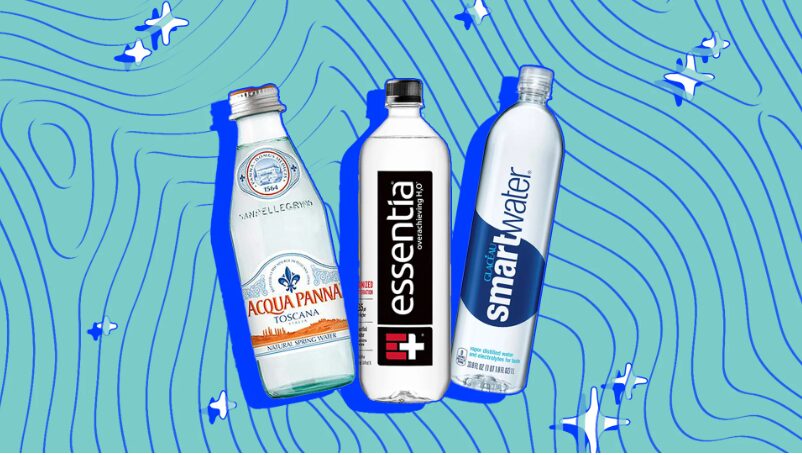Introduction
Bottled water has become a ubiquitous product in the global market, reflecting both consumer preferences for convenience and health-conscious choices. Over the past few decades, the bottled water industry has seen tremendous growth, driven by a combination of factors including health trends, marketing strategies, and global access to clean drinking water. This article explores the various aspects of the bottled water industry, including its market trends, health benefits, environmental impacts, and the future outlook.
Increasing Health Awareness
As consumers become more health-conscious, they are turning to bottled water as a healthier alternative to sugary drinks and sodas. Bottled water is perceived as a pure, calorie-free beverage that supports hydration without the added sugars and calories found in other beverages. This shift in consumer preferences has been a major driver of market growth.
Convenience and Portability
The convenience and portability of bottled water make it a popular choice for consumers on the go. Whether it’s for athletes, office workers, or travelers, the ease of carrying bottled water makes it an attractive option. This convenience factor has significantly contributed to the industry’s expansion, especially in urban areas where busy lifestyles demand quick and easy hydration solutions.
Premium and Functional Waters
The market for bottled water has diversified with the introduction of premium and functional waters. Premium bottled water brands emphasize purity, mineral content, and unique sources, often from natural springs or glacial sources. Functional waters, on the other hand, are infused with additional ingredients such as vitamins, electrolytes, and flavors to cater to specific health and wellness needs. These product innovations have broadened the market and attracted a wider range of consumers.
Environmental Concerns and Sustainable Practices
While the environmental impact of bottled water has raised concerns, it has also led to a push for more sustainable practices within the industry. Companies are increasingly adopting eco-friendly packaging, such as recycled PET bottles and biodegradable materials. Additionally, many brands are promoting recycling initiatives and reducing their carbon footprint to address environmental concerns and appeal to environmentally conscious consumers.
Health Benefits of Bottled Water
Bottled water offers several health benefits that contribute to its popularity among consumers:
Hydration
Proper hydration is essential for overall health and well-being. Bottled water provides a convenient and reliable source of hydration, especially in areas where tap water quality may be questionable. Staying hydrated helps maintain bodily functions, supports cognitive performance, and aids in physical activity.
Purity and Safety
Bottled water is often perceived as purer and safer than tap water, particularly in regions where the quality of municipal water supplies is inconsistent. Many bottled water brands undergo rigorous filtration and purification processes to ensure that the water is free from contaminants and impurities. This assurance of safety and quality is a significant factor in consumer preference for bottled water.
Mineral Content
Certain types of bottled water, such as mineral water, contain naturally occurring minerals like calcium, magnesium, and potassium. These minerals can contribute to daily nutrient intake and support overall health. The mineral content of bottled water can vary depending on the source, making it an appealing option for consumers seeking additional nutritional benefits.
Plastic Waste
One of the primary environmental issues associated with bottled water is plastic waste. Single-use plastic bottles contribute to pollution and landfill accumulation. Despite efforts to promote recycling, a substantial percentage of plastic bottles end up in the environment, where they can take hundreds of years to decompose. This has led to widespread criticism and calls for more sustainable packaging solutions.
Carbon Footprint
The production, transportation, and disposal of bottled water contribute to its carbon footprint. The energy required to manufacture plastic bottles, transport them to retailers, and dispose of them after use results in significant greenhouse gas emissions. While some companies are investing in carbon offset programs and more efficient production methods, the overall environmental impact remains a challenge.
Water Source Depletion
The extraction of water for bottling can impact local ecosystems and communities. Over-extraction from natural springs and aquifers can lead to depletion of water sources, affecting both wildlife and human populations. Sustainable water management practices are essential to ensure that water extraction does not negatively impact the environment or local communities.
Sustainable Practices and Innovations
In response to environmental concerns, the bottled water industry is adopting more sustainable practices and innovations:
Eco-Friendly Packaging
Many bottled water companies are transitioning to eco-friendly packaging materials. Recycled PET (rPET) bottles are increasingly used to reduce the demand for new plastic production. Additionally, some brands are exploring biodegradable and compostable packaging alternatives to minimize environmental impact.
Recycling Initiatives
Promoting recycling is a key strategy for reducing plastic waste. Companies are investing in recycling programs and partnerships to encourage consumers to recycle their bottles. Clear labeling and convenient recycling options can help increase recycling rates and reduce the environmental footprint of bottled water.
Carbon Neutrality
To address their carbon footprint, some bottled water companies are committing to carbon neutrality. This involves reducing emissions through more efficient production and transportation processes, as well as investing in carbon offset projects such as reforestation and renewable energy. Carbon neutrality initiatives help mitigate the environmental impact and demonstrate corporate responsibility.
Sustainable Water Management
Sustainable water management practices are essential to ensure that water extraction does not harm local ecosystems or communities. Companies are implementing measures to monitor and regulate water extraction, ensuring that it is done responsibly and sustainably. This includes engaging with local stakeholders and investing in water conservation projects.
Future Outlook
The future of the bottled water industry will be shaped by several key factors:
Continued Market Growth: The demand for bottled water is expected to continue growing, driven by health trends, urbanization, and increasing consumer awareness of hydration. The expansion of premium and functional water segments will also contribute to market growth, offering consumers a wider range of options.
Technological Advancements: Technological advancements in packaging, recycling, and water purification will play a critical role in the industry’s future. Innovations that reduce environmental impact and enhance product quality will be essential for sustaining growth and meeting consumer expectations.
Regulatory Changes:Regulatory changes aimed at reducing plastic waste and promoting sustainability will impact the bottled water industry. Companies will need to adapt to new regulations and invest in sustainable practices to remain compliant and competitive.
Consumer Preferences: Consumer preferences are shifting towards more sustainable and eco-friendly products. Bottled water companies that prioritize sustainability and transparency in their operations will likely gain a competitive advantage and attract environmentally conscious consumers.
Conclusion
The bottled water industry is a dynamic and evolving market with significant growth potential and numerous challenges. While the convenience, health benefits, and diverse product offerings drive consumer demand, the environmental impact remains a critical concern. Sustainable practices and innovations are essential for addressing these challenges and ensuring the long-term viability of the industry.
As consumers become more health-conscious and environmentally aware, bottled water companies must continue to adapt and innovate to meet their evolving needs and expectations. By focusing on sustainability and leveraging technological advancements, the bottled water industry can achieve a balance between growth and environmental responsibility.




